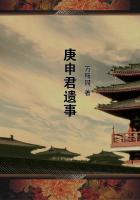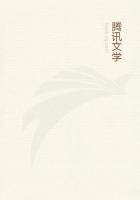A CERTAIN scientific gentleman of my acquaintance, who has devoted years to investigating the subject, states that he has never come across a case of remarkable longevity un-accompanied by the habit of early rising; from which testimony it might be inferred that they die early who lie abed late. But this would be getting out at the wrong station. That the majority of elderly persons are early risers is due to the ****** fact that they cannot sleep morn-ings. After a man passes his fiftieth milestone he usually awakens at dawn, and his wakeful-ness is no credit to him. As the theorist con-fined his observations to the aged, he easily reached the conclusion that men live to be old because they do not sleep late, instead of per-ceiving that men do not sleep late because they are old. He moreover failed to take into ac-count the numberless young lives that have been shortened by matutinal habits.
The intelligent reader, and no other is sup-posable, need not be told that the early bird aphorism is a warning and not an incentive.
The fate of the worm refutes the pretended ethical teaching of the proverb, which assumes to illustrate the advantage of early rising and does so by showing how extremely dangerous it is. I have no patience with the worm, and when I rise with the lark I am always careful to select a lark that has overslept himself.
The example set by this mythical bird, a myth-ical bird so far as New England is concerned, has wrought wide-spread mischief and discom-fort. It is worth noting that his method of ac-complishing these ends is directly the reverse of that of the Caribbean insect mentioned by Laf-cadio Hearn in his enchanting "Two Years in the French West Indies"--a species of colossal cricket called the wood-kid; in the creole tongue, <i>cabritt-bois</i>. This ingenious pest works a sooth-ing, sleep-compelling chant from sundown until precisely half past four in the morning, when it suddenly stops and by its silence awakens everybody it has lulled into slumber with its in-sidious croon. Mr. Hearn, with strange obtuse-ness to the enormity of the thing, blandly re-marks: "For thousands of early risers too poor to own a clock, the cessation of its song is the signal to get up." I devoutly trust that none of the West India islands furnishing such satanic entomological specimens will ever be annexed to the United States. Some of our extreme ad-vocates of territorial expansion might spend a profitable few weeks on one of those favored isles. A brief association with that <i>cabritt-bois</i>
would be likely to cool the enthusiasm of the most ardent imperialist.
An incalculable amount of specious sentiment has been lavished upon daybreak, chiefly by poets who breakfasted, when they did breakfast, at mid-day. It is charitably to be said that their practice was better than their precept--or their poetry. Thomson, the author of "The Castle of Indolence," who gave birth to the depraved apostrophe, Falsely luxurious, will not man awake, was one of the laziest men of his century. He customarily lay in bed until noon meditating pentameters on sunrise. This creature used to be seen in his garden of an afternoon, with both hands in his waistcoat pockets, eating peaches from a pendent bough. Nearly all the English poets who at that epoch celebrated what they called "the effulgent orb of day" were denizens of London, where pure sunshine is unknown eleven months out of the twelve.
In a great city there are few incentives to early rising. What charm is there in roof-tops and chimney-stacks to induce one to escape even from a nightmare? What is more depressing than a city street before the shop-windows have lifted an eyelid, when "the very houses seem asleep," as Wordsworth says, and nobody is astir but the belated burglar or the milk-and-water man or Mary washing off the front steps?
Daybreak at the seaside or up among the moun-tains is sometimes worth while, though famil-iarity with it breeds indifference. The man forced by restlessness or occupation to drink the first vintage of the morning every day of his life has no right appreciation of the beverage, how-ever much he may profess to relish it. It is only your habitual late riser who takes in the full flavor of Nature at those rare intervals when he gets up to go a-fishing. He brings virginal emotions and unsatiated eyes to the sparkling freshness of earth and stream and sky. For him --a momentary Adam--the world is newly created. It is Eden come again, with Eve in the similitude of a three-pound trout.
In the country, then, it is well enough occa-sionally to dress by candle-light and assist at the ceremony of dawn; it is well if for no other purpose than to disarm the intolerance of the professional early riser who, were he in a state of perfect health, would not be the wandering victim of insomnia, and boast of it. There are few small things more exasperating than this early bird with the worm of his conceit in his bill.

